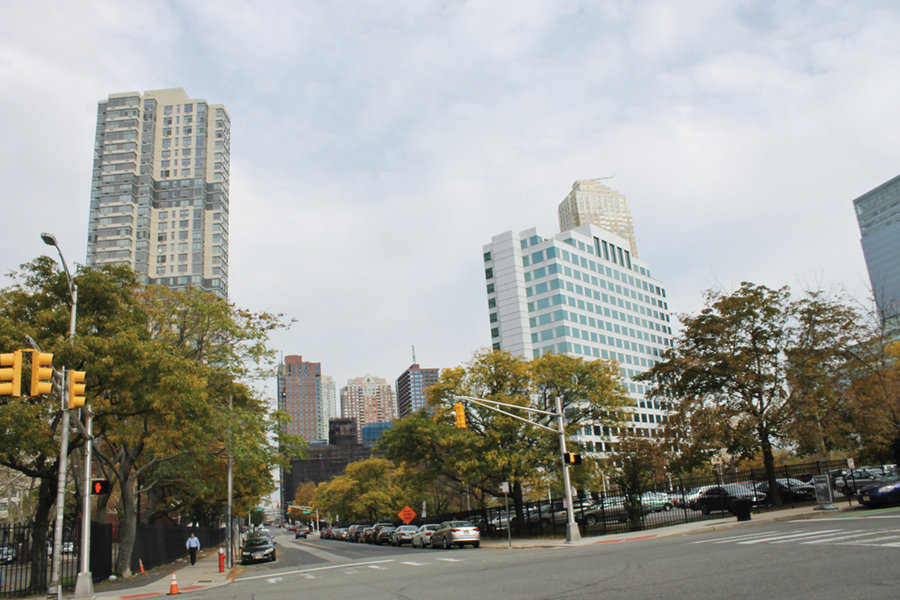Websites advertising short term rentals in homes and condos in Jersey City would be required to charge the city’s six percent hotel tax under proposed changes introduced by the City Council on March 25. Seeking to collect revenue from temporary rentals, the ordinance would require payment of the hotel tax on accommodations rented by homeowners or corporations.
Currently, homeowners, condo owners, and others can rent temporary accommodations for up to 30 days without paying the hotel tax, even though state law defines temporary rental as anything less than 90 days.
The ordinance would close a legal loophole that has allowed some people in the city to avoid paying the six percent hotel tax, and would align the city’s definition of the term “temporary” with the state of New Jersey’s definition.
Websites like Airbnb, VBRO, HomeAway, and FlipKey, among others, list more than one thousand condos, apartments and houses in Jersey City for short-term hosting rentals for people hoping to visit Jersey City and the New York metropolitan area. These visitors, however, have not been paying the local hotel tax that is paid by traditional hotel guests.
The city’s hotel tax currently generates approximately $7 million annually.
Airbnb and other short-term hotel sites would collect the hotel tax directly from the consumer, so there is no impact to any Jersey City resident wishing to rent out their property for short-term stays.
“Hundreds of thousands of people visit Jersey City each year, and this amendment allows us to keep up with the way technology is changing the hotel and short-term rental industry.” – Mayor Steven Fulop.
____________
“The reality is that companies like Airbnb create hotel rooms in cities like Jersey City and their guests should be paying the local hotel tax,” said Councilwoman Osborne. “Closing this loophole will benefit Jersey City taxpayers as we continue to grow as a tourist destination.”
The amendment, which also broadens the definition of a hotel to include apartments, bed and breakfasts, houses, and condos, is expected to generate upwards of a million dollars annually in new revenue for the city.
“Some places are being rented out like motels, and we need to collect the taxes that are due to the city,” Osborne said.
Concerned for impact on homeowners
Councilman Richard Boggiano, however, opposed part of the change, saying that local home owners should not be included.
“Some senior citizens need the money from renting parts of their house to pay their bills,” he said. “I agree condos should be included, but not homes. Hitting up houses is wrong.”
Osborne pointed out that the impact will be on the consumer, not the owner.
“We’re not tracking individuals, and we shouldn’t be crafting this law to exclude home owners,” she said. “The state said that any place that rents for more than 90 days is exempt from the hotel tax.”
City Attorney Jeremy Farrell said that the tax is used to offset the impact on the community from people coming in for a short time.
Boggianno argued that these rentals bring in people who do business in the town.
Council President Rolando Lavarro, however, said the fees would be generated from those renting the property much in the way hotels currently add the charge to the bill when the rooms are rented.
“This is not a charge to local residents,” he said. Lavarro said the city would require websites to impose the charge when they book the rooms.
“Hundreds of thousands of people visit Jersey City each year, and this amendment allows us to keep up with the way technology is changing the hotel and short-term rental industry,” said Mayor Steven Fulop. ”It’s another example of how we are working to identify revenue sources that are both recurring and that do not impact our homeowners and taxpayers.”
Councilman Michael Yun said he also supports the legislation, but questioned how it could be enforced – especially in regards to homeowners.
Other cities that Airbnb has begun submitting taxes to include San Francisco, Portland, Ore., San Jose, Calif., Chicago and Washington, D.C., as well as Amsterdam.
“Councilwoman Osborne’s ordinance will enable Jersey City to grow its revenues without adding to the tax burden of either local residents or business,” said Maria Nieves, President and CEO of the Hudson County Chamber of Commerce. “It’s a proactive piece of legislation that legitimizes Airbnb operations and taps into the growing diversity of lodging options and tourism to our region.”
Al Sullivan may be reached at asullivan@hudsonreporter.com.
